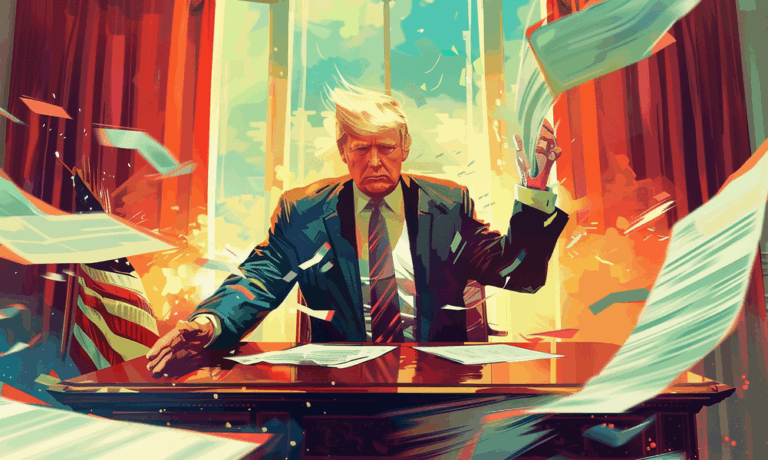Are sustainable neobanks really banks?

Green Got, Helios, La Nef… they have great names and give their customers an indication of how their money is being used. Sustainable neobanks, as they call themselves, do not fund polluting activities; instead, they invest in environmentally or socially responsible projects. But are they really banks in the traditional sense? Do they fulfil the same micro- and macroeconomic roles? What consequences could their new influence have?
“Sustainable” or “ethical” neobanks are attracting more and more customers in France. In 2020, the ACPR (the Prudential Supervision and Resolution Authority), which is responsible for overseeing the banking and insurance sectors in France, recorded 16 million online banking customers nationwide. This figure had doubled since 2018. These banks advocate transparency, cooperation, and responsible investment, high-impact societal values that are increasingly demanded by the general public and investors in the wake of the hyper-finance of the 1990s, which resulted from deregulation and the rise of financial markets. In short, they embody everything that we no longer associate with major banks. But should we continue to call them “banks”?
If they are revolutionising banking, it is in the true sense of the word: sustainable “neobanks” are returning to the essence of finance, to its fundamentals. When you put your money in a traditional bank, you don’t really know where it is going. You only know is that it is not sitting idle, that it is being reinvested somewhere, but you don’t really know where or in what. It is this obscurity that sustainable “neobanks” such as Green Got, Helios and La Nef want to dispel.
At the origin of banks
These new organisations are returning to the original function of the financiers of old. Since its inception, banking has been a social bridge, an institution offering freedom through credit, and a human nerve centre whose effects are visible and palpable to all. By remaining small through voluntary downscaling to target small businesses, sustainable banks are counteracting the dehumanisation of large banks, some of which have a turnover exceeding the GDP of certain countries.
If the message promoted by sustainable banks resonates so strongly, it is because they are offering a renewed connection with the real economy and seem to be reconciling citizens with banking. Green-Got, for example, focuses on sustainable and responsible financial services, ensuring that its activities align with environmental and social goals. It offers current accounts, savings accounts, and investments in projects that have a positive impact.
Real fake banks?
While neobanks appear to be returning to the essence of banking, they are not (all) banks in the traditional sense of the French Banking Act of 1984. This misnomer creates a grey area (which, as we know, often hides something sinister), and this needs to be cleared up. We must clarify and demystify these institutions, which have a legitimate place in society. It is also important to recall the fundamentals of traditional banks and compare them with the attributes of these new financial vehicles.
Legally speaking, neobanks are considered to be payment or electronic money institutions. This means that they can offer financial services, such as account management and money transfers, but they are not subject to the same regulatory obligations as traditional banks. Green-Got and Helios, for example, are payment and electronic money institutions. They restrict their offering to niche financial services and do not have a licence to grant credit through money creation. This means that, unlike traditional banks, they cannot pass on crises through the credit chain.
Some other neobanks, however, have obtained a licence enabling them to offer a wider range of services, including loans and savings products. N26 and Revolut, for instance, hold banking licences in Europe, enabling them to operate as traditional banks in certain areas.
A micro-social approach
Nevertheless, neobanks cannot replace traditional banks. They often operate outside the scope of banking law and take a more micro-social approach. However, banking/financial action on the macroeconomic scale of an entire country is more than necessary. As early as 1911, in his theory of economic development, Joseph Schumpeter stated that real banks drive innovation and macroeconomic development. This “upscaling” approach aims to support large companies and “corporate finance”, while ensuring the stability of the financial system that guarantees growth in national wealth.
Banks play a central role in a modern economy. At least four functions give them the distinctive natural monopoly status that neobanks cannot achieve:
- financial risk management through products such as insurance and cover options that allow companies to protect themselves against economic uncertainty;
- money creation through lending increases the amount of money in circulation, which can stimulate economic activity;
- regulation of the supply of credit to ensure the liquidity of the financial system and thus maintain economic stability;
- support for innovation by financing innovative projects that enable technological and economic development.
In summary, banks play a crucial role in the growth and transformation of economies. This is something that neobanks, as niche players, cannot guarantee on a large scale.
This article is republished from The Conversation under a Creative Commons license. Read the original article in French.



